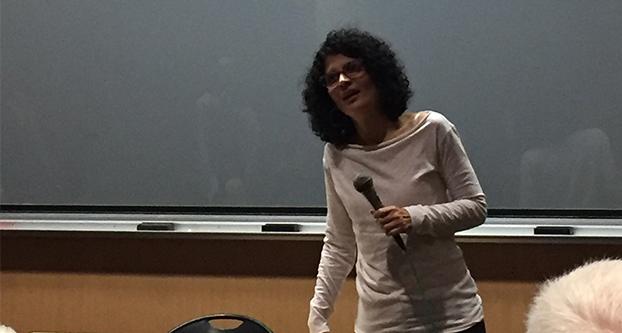Last Friday’s CineCulture screening featured a film that examined racism through the lens of a woman who faces it within her own family.
The film, “Angelica,” centers on an aspiring fashion designer, named Angelica, who left New York City to return to her home in Puerto Rico upon learning that her father had experienced a heart attack.
Angelica is a half-black woman who faces racially infused comments from her mother and her mother’s side of the family, which is composed of individuals who are not black. They make remarks about her skin tone as well as the curliness of her hair.
The film follows Angelica’s struggle to cope with these comments. She views them as more of a concern than her family does.
Mary Husain, who teaches the CineCulture class and advises the CineCulture club, said she chose to screen this film because it explores issues that are relevant to a variety of individuals.
“I thought it was a compelling story,” Husain said. “This whole issue of skin tone goes across many different cultures and regions in the world.”
Husain said that it is crucial to recognize the ways in which skin tone affects people’s lives.
“In terms of our society in the U.S., we’ve certainly made progress,” Husain said. “But there’s [still] a lot of progress to be made.”
In addition, Husain said she hopes that through viewing the film, individuals will personally consider the role they play in resolving issues surrounding racism.
“Maybe some people will look in the mirror at their own biases and prejudices,” Husain said. “We all have them.”
After the film was shown, director Marisol Gomez-Mouakad answered audience questions. Gomez-Mouakad earned a bachelor’s degree in fine arts from the University of Massachusetts, as well as a master’s in media studies concentrating in film production from The New School.
“Angelica” was featured at several film festivals, including the New York Latino Film Festival and the African Diaspora Film Festival.
During the discussion, Gomez-Mouakad explained that it is crucial to acknowledge the racism that people of color face.
“Things don’t get resolved unless they get discussed,” she said.
Gomez-Mouakad also says that working toward redefining racial stereotypes is a process that takes much time.
“Change doesn’t happen overnight,” she said.
Attendee Tom Zynda said he felt the storyline of the film was unique from many other films.
“It’s a perspective that we don’t often see in films,” Zynda said. “I don’t think I’ve seen a film that’s explored quite in this way before.”
Attendee Chimine Arfuso felt that the film mirrored some of her own personal experiences.
“It’s liberating to see something that I’ve experienced in my own family in film,” Arfuso said. “It’s not something really widely spoken about in Latin American families — racism and colorism.”




